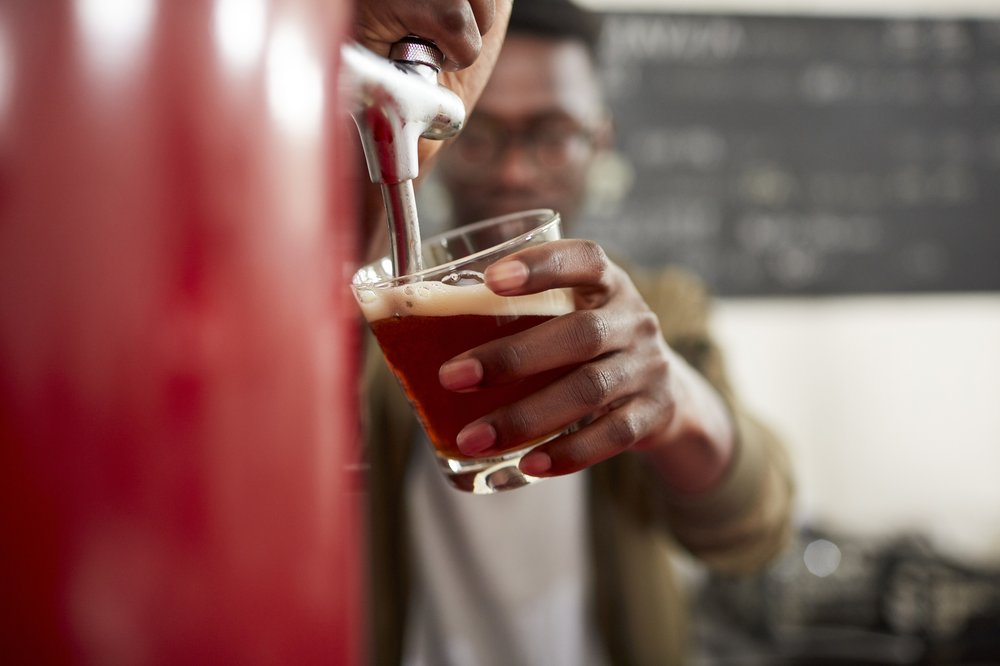Future uncertain for NJ breweries, with Gov. Murphy yet to lift restrictions
Dec. 8, 2023, 6 a.m.
Rules that limit special events at breweries and bar them from making food available are set to be enforced next month.

Some of New Jersey’s brewery owners are losing confidence that Gov. Phil Murphy will sign a new law to loosen restrictions on how they do business by the end of the year.
Starting in 2024, the state is slated to begin enforcing restrictions that brewery owners, most legislators and even the governor himself have all said will unfairly hamper businesses in an already struggling hospitality industry. The rules bar breweries from partnering with food trucks or other vendors to offer food on site, and also prohibit breweries from hosting more than 25 special events per year, among other restrictions.
“Right now it’s a complete disaster,” said Scott Wells, co-owner of Bolero Snort Brewery in Carlstadt.
This summer, the state Legislature unanimously passed a bill to ease the restrictions, including removing the limit on special events and private parties and explicitly specifying that breweries can partner with nearby food trucks and other vendors. But Murphy conditionally vetoed the bill last month.
In a statement, Murphy said that the bill's current form “does not sufficiently enhance [New Jersey's] antiquated liquor license laws." He sent it back to lawmakers, saying he wanted the bill to incorporate elements of his attempt at broader liquor license reform.
For example, Murphy said he would like to see the bill amended with measures for getting inactive “pocket” liquor licenses put back on the market, and that provide “more opportunities for shopping mall-bound businesses to partake in alcohol sales.”
Since Murphy’s last State of the State address nearly a year ago, the governor has been pushing to phase out New Jersey's Prohibition-era caps on how many liquor licenses a town can award. But that proposal hasn’t been nearly as popular as the move to loosen restrictions on breweries, and has encountered opposition from bar and restaurant owners who say they’ve invested heavily in existing liquor licenses and are dependent on their resale value and business benefits. In some New Jersey communities, liquor licenses can sell for hundreds of thousands of dollars.
In order to accomplish something on this issue, state lawmakers would need to craft a new bill and get it to the governor’s desk during this month’s lame-duck session. But some in New Jersey’s brewery industry don’t see that happening.
“There's no reason to be confident anything's going to get done at this point,” said Wells, who is also a board member for the Brewers Guild of New Jersey.
Eric Orlando, the guild's executive director, said those in the industry don’t know what’s going to happen next.
“We feel like we've been a political football up to this point, and now there's no real way to get us out of this situation,” he said.
After Murphy’s conditional veto came down, the prospect of saving the bill quickly looked grim. State Senate Majority Leader Nicholas Scutari told NJ Advance Media last week he didn’t think legislators would be able to move anything forward during the lame-duck session that ends Jan. 9.
There's no reason to be confident anything's going to get done at this point.
Scott Wells, co-owner of Bolero Snort Brewery in Carlstadt
But state Sen. Vin Gopal, one of the brewery bill's key sponsors, told Gothamist that “if there’s an agreement, we’ll get it done.”
He said his office is communicating with the Legislature’s leadership about a path forward.
Gopal also criticized the governor's move, saying it's not good public policy “to debate nearly 100 years of liquor policy in a conditional veto.” But he added that he expects some of Murphy’s conditions will be included in any new piece of legislation.
Jennifer Sciortino, a spokesperson for the governor, said Murphy “remains committed to working with his partners in the legislature to find an equitable path forward.”
But Amanda Stone, director of government affairs for the New Jersey Restaurant & Hospitality Association, said her group shares the legislative leadership’s doubts about getting something done in the lame-duck session.
“We agree it's way too much to push through in just a couple weeks,” she said.
Stone said the trade group would like to see the original version of the brewery bill signed into law.
Meanwhile, the breweries remain in limbo.
The restrictions are mostly the product of a special ruling handed down in 2019 by the state’s Division of Alcoholic Beverage Control and that went into effect in July 2022.
After that, Orlando of the Brewers Guild said, the division took a relatively hands-off approach for a year and engaged in what he described as “selective enforcement” of the restrictions. Then this summer, the ABC placed a moratorium on those restrictions that’s set to expire at the end of the year.
“If breweries do any of the things that were prohibited on their license, breweries can get cited for violations, which could include monetary penalties, a suspension of their license or the closure of their business altogether,” Orlando said.
It’s possible the division could extend the moratorium. The ABC falls under the authority of the state’s attorney general’s office, which hasn’t yet provided a requested comment for this story.
Denise-Ford Sawadogo, co-owner of Montclair Brewery in Montclair, said she worries “a little less” about how to run her business with the moratorium in place and state officials seeming reluctant to start enforcing the restrictions.
“But it’s still in the back of your mind — what if they change their minds?” she said.
Gov. Murphy won't yet lift craft breweries restrictions, even if they're 'ridiculous' Murphy would bar resale of NJ's lucrative liquor licenses — but punts on how to reimburse owners